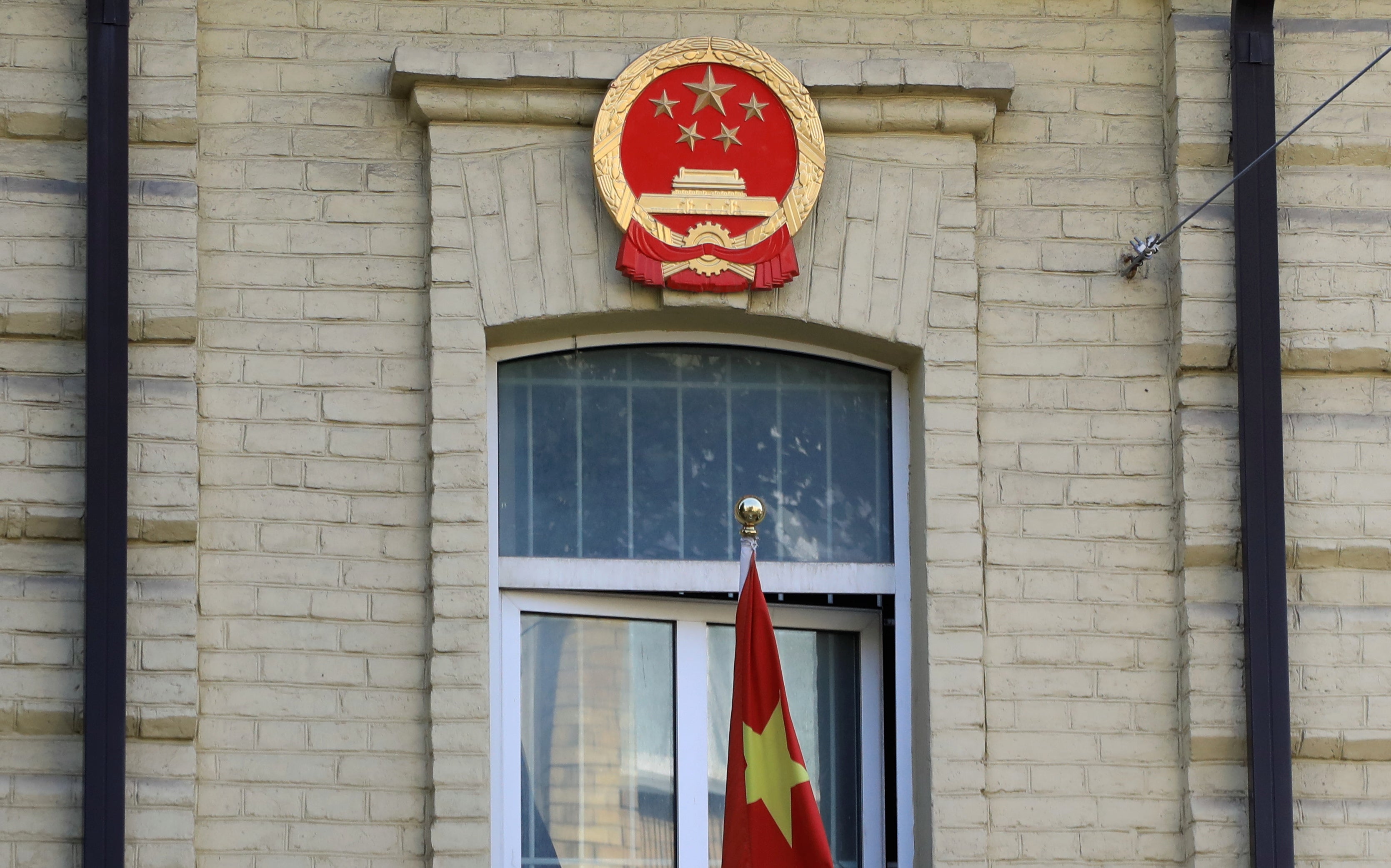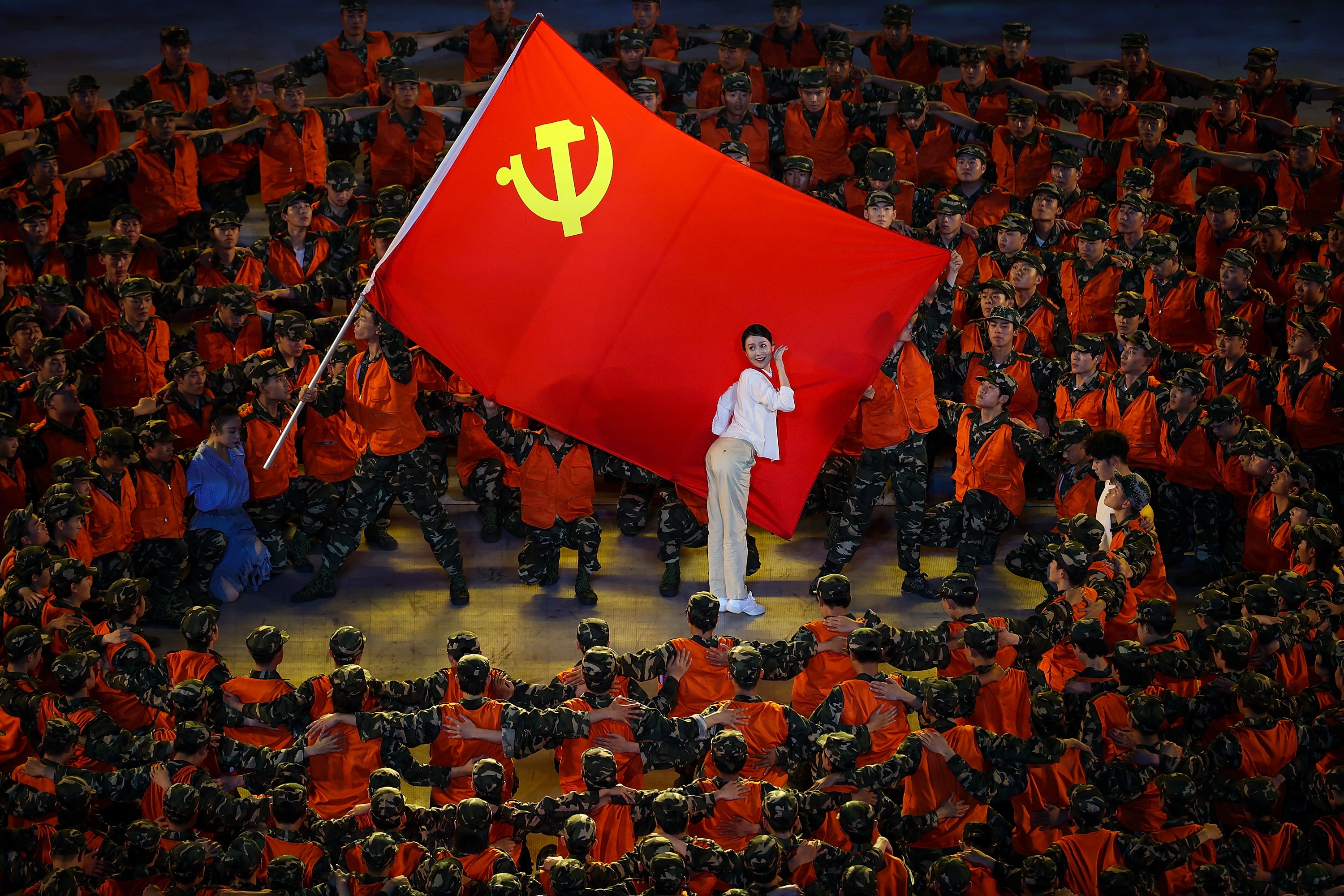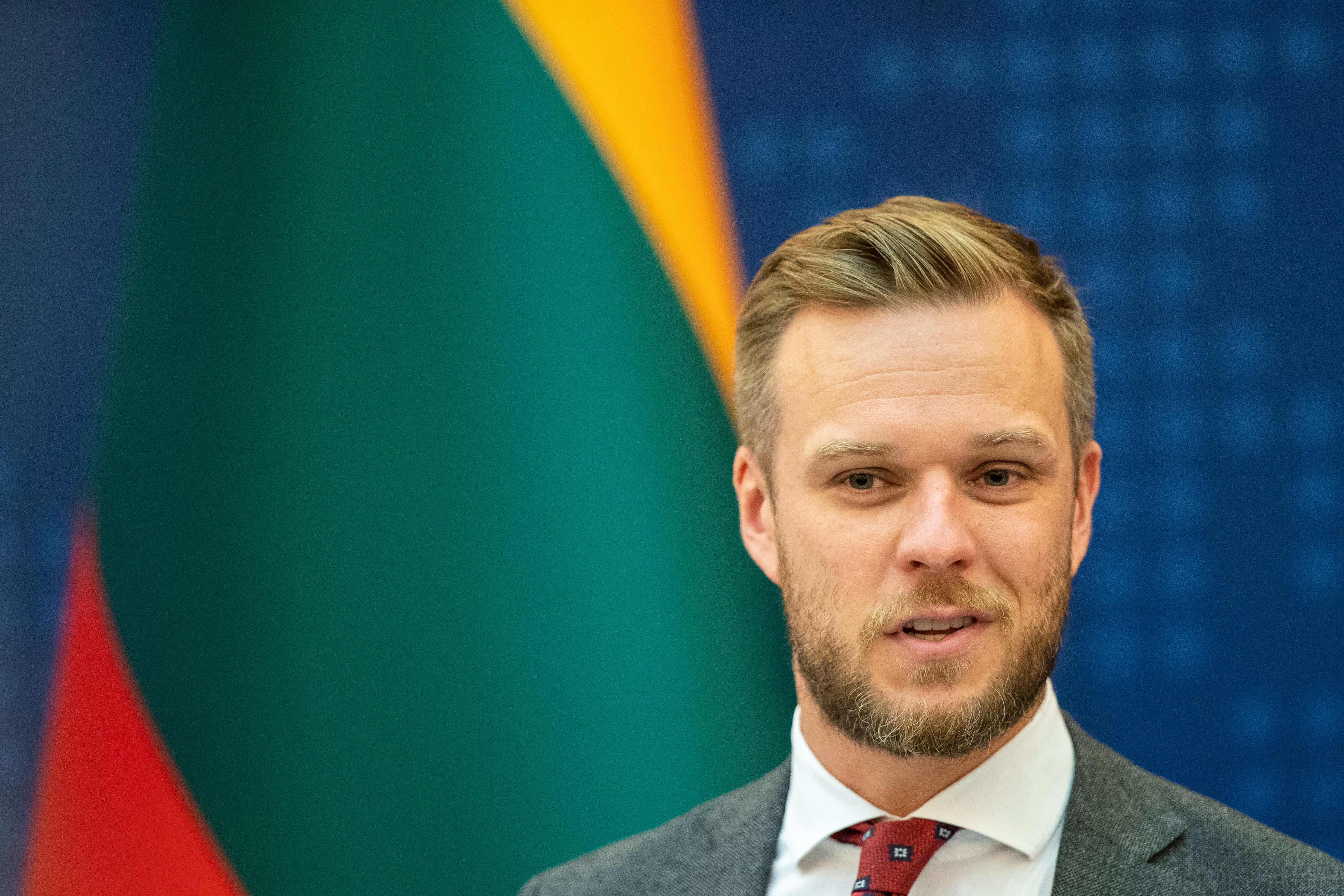‘More bark than bite’: How China’s reprimand over Taiwan falls on deaf ears in Lithuania
Lithuania is rising as a prominent defender of human rights in the face of China’s assertiveness, but its too small to drag the rest of the EU in the same direction, writes Ahmed Aboudouh


China recalled its ambassador to Lithuania on Tuesday over the Baltic nation’s move to allow Taiwan to open a diplomatic outpost in Vilnius.
“The decision brazenly violates the spirit of the communique on the establishment of diplomatic relations between China and Lithuania and severely undermines China’s sovereignty and territorial integrity,” China’s foreign ministry said in a statement.
“The Chinese government expresses its categorical opposition to this move,” it added, saying that Beijing has called back its ambassador, Shen Zhifei, and asked the Lithuanian government to recall its ambassador to China, Diana Mickeviciene.
Ms Mickeviciene had already been in Lithuania for some time when China issued its angry reaction. The fallout between the two nations was well expected as Lithuania grew increasingly wary of China’s influence in Europe and more supportive of Taiwan.
China considers Taiwan to be part of its territory and has threatened to unify the two sides by force, if necessary, which president Xi Jinping has described as a “historic mission”.

Beijing has long required that countries cut their ties with Taiwan in order to establish relations with China. This is called the “One China” policy, which is recognised by the US, the UK and EU.
Its aggressive response to Lithuania is understood to be a warning shot to other European countries to discourage them from following the same example.
Lithuania’s decision was “politically courageous and significant”, Didi Kirsten Tatlow, a senior fellow at the German Council on Foreign Relations in Berlin, told The Independent.
In March 1990, when Lithuania was in the midst of its violent break from the Soviet Union, Iceland gave the small Baltic nation hope by becoming the first country in the world to recognise its independence. It was then called the “Iceland moment”, an emotional historical turn that boosted the morale of a nation in despair. Now many in Lithuania are fervent supporters of affording Taiwan its “Iceland moment”.
“Lithuania, which has a long-term negative historical experience with Russia and shares borders with Belarus, identifies with Taiwan and sees the cross-strait issue through the prism of its own historical experience with non-democratic regimes,” Ivana Karaskova, leader of China Observers in Central and Eastern Europe (CHOICE), said.
The general elections in Lithuania elevated a centre-right alliance to power. One of the central campaign slogans was a “values-based foreign policy”. The driving force behind this approach is the young and ambitious foreign minister Gabrielius Landsbergis, the grandson of Vytautas Landsbergis, a prominent opponent of the Soviet communist rule and Lithuania’s first parliament speaker after independence.
Since then, Lithuania tended to adopt a more hawkish policy towards authoritarian countries, like China, Russia and Belarus.
“Lithuania has a painful history of Soviet Communism, so it has a genuine domestic interest in standing up for democracy. It understands, perhaps better than others in the older Western European democracies, why it’s worth defending and enlarging even when it’s tough and requires sacrifices,” Dr Tatlow said.
Lithuania has a painful history of Soviet Communism, so it has a genuine domestic interest in standing up for democracy.
But, for Beijing, the name of the proposed de facto embassy is a hugely contentious issue. The potential diplomatic office would be called “Taiwan representative office”, in a clear break away from the classical euphemism “Taipei” trade office, used in the rest of Europe and beyond.
This would make it the first such office in Europe to represent Taiwan by its name, which China considers a violation of the “One China” policy.
Before that, Lithuania had hoped to benefit from its membership of China’s “17+1” block with central and eastern Europe to address a soaring trade deficit and benefit from China’s blueprint Belt and Road Initiative projects. But this has not been realised as China lagged behind on its investment promises and focused instead on organising high profile diplomatic meetings.
The total Chinese investment in Lithuania was estimated to be around just £70m last year, according to the Central and Eastern Europe Centre for Asian Studies. This amounts to around 0.4 per cent of Lithuania’s total foreign direct investment. The United Nations COMTRADE database on international trade shows China’s exports to Lithuania reached £1bn in 2020, while China imported Lithuanian goods worth merely £258m the same year.
Lithuania has, subsequently, decided to withdraw from the “17+1” in May, calling on all EU members to pull out. “From our perspective, it is high time for the EU to move from a dividing 16+1 format to a more uniting and therefore much more efficient 27+1,” Mr Landsbergis told Politico back then. “The EU is strongest when all 27 member states act together along with EU institutions.”
Similar policies would usually attract Beijing’s wrath, as was evident in China turning the economic screws on Australia last year after it had called for an investigation into the Covid-19 origin.

But the low rate of Chinese investment and economic engagement with Lithuania was seen as a blessing. It meant Vilnius was able to pursue a relatively aggressive policy towards China as a response to its assertiveness in the Indo-Pacific region and Xinjiang without fearing retaliation.
Simultaneously, Lithuania’s parliament joined other governments in describing China’s treatment of its Uyghur minority as “genocide”. It also voted to call for a UN investigation of internment camps, and asked the European Commission to review relations with Beijing.
“The recent shift in tone is a good expression of the overall changing sentiment in Europe, and in a way, Lithuania is making use of its very limited dependence on China,” Janka Oertel, Director of the Asia programme at the European Council on Foreign Relations, told The Independent.
The EU voiced cautious opposition to China’s move. “This is the first time China has recalled an Ambassador in an EU Member State for opening ... an office in Taiwan,” an EU spokesperson said on Tuesday. “We regret the Chinese action and are following developments closely.”
The spokesperson said: “Fundamentally, this is a bilateral matter between China and Lithuania. Having said that, the development of China’s bilateral relations with the individual EU member states inevitably has an impact on overall EU-China relations.”
The EU “soft” approach has long antagonised Lithuania and many smaller countries in the EU who became convinced that the veto of France and Germany over the bloc’s policies towards Beijing has to end.
In December last year, the two major powers signed the historic Comprehensive Agreement on Investment that would grant China greater access to EU markets. The European Parliament later shelved the agreement after Beijing imposed economic sanctions on its outspoken members on the human rights situation in China.
But signing the deal was seen by many within the EU as a rushed move spearheaded by Paris and Berlin.
“The Franco-German domination in the EU, while meant as a way to ensure the Union and its core remain strong after Brexit, may backfire by increasingly alienating smaller states that don’t feel represented,” Dr Tatlow said.
The Franco-German domination in the EU may backfire by increasingly alienating smaller states that don’t feel represented
“A prime example of this was the CAI investment deal with China that was driven by Germany, with France given special access. It was not popular everywhere in Europe,” she noted.
“This is an interesting message to Paris and Berlin that there are many different voices in Europe on these questions and that EU member states will make their independent decisions that need to be factored in in future strategy discussions,” Dr Oertel noted.
Meanwhile, Lithuania’s new approach started to attract Washington’s attention as a new front against authoritarianism with continental ambitions. And this policy started to pay off.
The small Baltic nation has already scored gains. In June, it was announced that the 2023 Nato summit would be held in Lithuania, and former president Dalia Grybauskaite has become a serious contender for the role of Nato general secretary.
“Not all of this is, of course, connected to the Lithuanian change of approach to China – Russia and Belarus have also been factored in,” Dr Karaskova said.
China is expected to pressure Lithuania to take a step back in its relations with Taiwan. But it is unclear whether the Lithuanian government would be ready to take Beijing’s warnings seriously.
“This can all still be de-escalated, and likely will, but the question is what if not? In a way, it is also an interesting test case of how much China’s assertive rhetoric is more bark than bite,“ Dr Oertel said.
Join our commenting forum
Join thought-provoking conversations, follow other Independent readers and see their replies
Comments
Bookmark popover
Removed from bookmarks